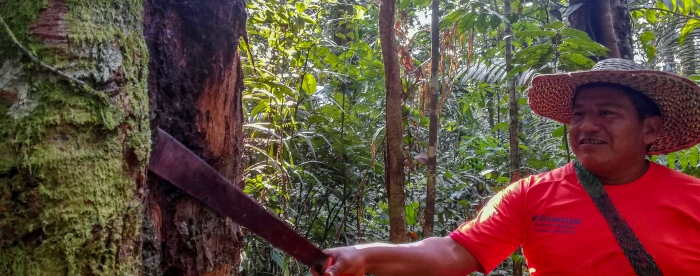In this paper the authors argue that, rather than using preconceived notions of good governance and predefined community forestry models, NGOs need to assist communities with strengthening and adapting local governance structures, so they are better equipped to deal with opportunities and challenges associated with ongoing commercialization and pressures from external actors. This means that NGO practitioners must act as facilitators of community-level discussions, negotiations, and decision-making, and of interactions with external actors.
For NGOs to play this role effectively, they need to engage in long-term commitments with communities. Next to that, there is a need to invest in the training of practitioners, so they not only have the necessary technical and management skills, but also the skills to facilitate highly complex and dynamic social processes. Only then will community forestry initiatives contribute to local agency and ownership, as key requirements for successful community forestry in the long term.
This perpective paper is the result of a initiative of TBI in collaboration with RECOFTC, where a group of practitioners working on community forestry in Bolivia, Colombia, DR Congo, Ethiopia, Nepal and the Philippines have been exchanging experiences to reflect on the role of NGOs in community forestry initiatives.
